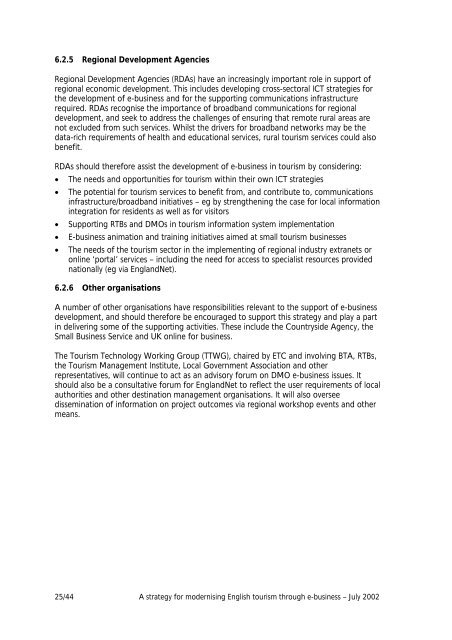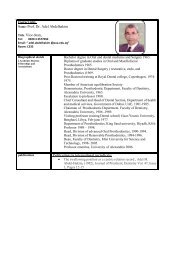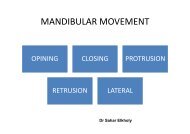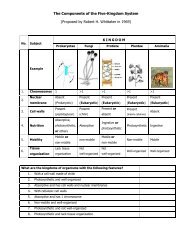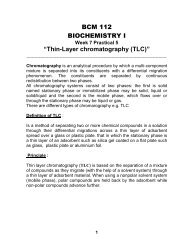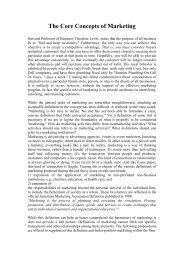E-tourism in England a strategy .pdf
E-tourism in England a strategy .pdf
E-tourism in England a strategy .pdf
You also want an ePaper? Increase the reach of your titles
YUMPU automatically turns print PDFs into web optimized ePapers that Google loves.
6.2.5 Regional Development Agencies<br />
Regional Development Agencies (RDAs) have an <strong>in</strong>creas<strong>in</strong>gly important role <strong>in</strong> support of<br />
regional economic development. This <strong>in</strong>cludes develop<strong>in</strong>g cross-sectoral ICT strategies for<br />
the development of e-bus<strong>in</strong>ess and for the support<strong>in</strong>g communications <strong>in</strong>frastructure<br />
required. RDAs recognise the importance of broadband communications for regional<br />
development, and seek to address the challenges of ensur<strong>in</strong>g that remote rural areas are<br />
not excluded from such services. Whilst the drivers for broadband networks may be the<br />
data-rich requirements of health and educational services, rural <strong>tourism</strong> services could also<br />
benefit.<br />
RDAs should therefore assist the development of e-bus<strong>in</strong>ess <strong>in</strong> <strong>tourism</strong> by consider<strong>in</strong>g:<br />
• The needs and opportunities for <strong>tourism</strong> with<strong>in</strong> their own ICT strategies<br />
• The potential for <strong>tourism</strong> services to benefit from, and contribute to, communications<br />
<strong>in</strong>frastructure/broadband <strong>in</strong>itiatives – eg by strengthen<strong>in</strong>g the case for local <strong>in</strong>formation<br />
<strong>in</strong>tegration for residents as well as for visitors<br />
• Support<strong>in</strong>g RTBs and DMOs <strong>in</strong> <strong>tourism</strong> <strong>in</strong>formation system implementation<br />
• E-bus<strong>in</strong>ess animation and tra<strong>in</strong><strong>in</strong>g <strong>in</strong>itiatives aimed at small <strong>tourism</strong> bus<strong>in</strong>esses<br />
• The needs of the <strong>tourism</strong> sector <strong>in</strong> the implement<strong>in</strong>g of regional <strong>in</strong>dustry extranets or<br />
onl<strong>in</strong>e ‘portal’ services – <strong>in</strong>clud<strong>in</strong>g the need for access to specialist resources provided<br />
nationally (eg via <strong>England</strong>Net).<br />
6.2.6 Other organisations<br />
A number of other organisations have responsibilities relevant to the support of e-bus<strong>in</strong>ess<br />
development, and should therefore be encouraged to support this <strong>strategy</strong> and play a part<br />
<strong>in</strong> deliver<strong>in</strong>g some of the support<strong>in</strong>g activities. These <strong>in</strong>clude the Countryside Agency, the<br />
Small Bus<strong>in</strong>ess Service and UK onl<strong>in</strong>e for bus<strong>in</strong>ess.<br />
The Tourism Technology Work<strong>in</strong>g Group (TTWG), chaired by ETC and <strong>in</strong>volv<strong>in</strong>g BTA, RTBs,<br />
the Tourism Management Institute, Local Government Association and other<br />
representatives, will cont<strong>in</strong>ue to act as an advisory forum on DMO e-bus<strong>in</strong>ess issues. It<br />
should also be a consultative forum for <strong>England</strong>Net to reflect the user requirements of local<br />
authorities and other dest<strong>in</strong>ation management organisations. It will also oversee<br />
dissem<strong>in</strong>ation of <strong>in</strong>formation on project outcomes via regional workshop events and other<br />
means.<br />
25/44 A <strong>strategy</strong> for modernis<strong>in</strong>g English <strong>tourism</strong> through e-bus<strong>in</strong>ess – July 2002


